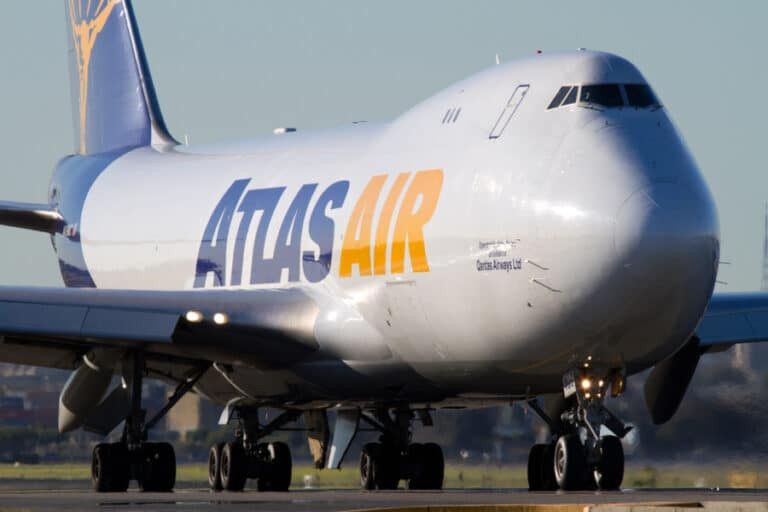Atlas Air Worldwide has posted a third quarter profits of $71.1 million but pilot unions are warning the public not to be fooled by executives painting a rosy picture.
The third quarter profit compares to a loss of $24.1 million in the same period last year, while net income for the first nine months of 2018 are up to $59.6 million, compared to $14 million in 2017.
Revenue in the third quarter was up 23 per cent to $656.6 million, with ACMI revenue increasing from $258.1 million in 2017 to $288.6 million in 2018, charter from $243.6 million to $322.7 million and dry leasing from $30.8 million to $44.5 million.
ACMI revenue was affected by unscheduled maintenance and higher crew costs resulting from an interim labour agreement with Southern Air pilots, while block hours grew 13 per cent due to Boeing 767 services for Amazon and starting Boeing 747-400 operations for several new customers.
The charter segment benefitted from an increase in military and commercial cargo demand and higher yields.
Dry leasing’s contribution reflected the placement of additional Boeing 767-300 converted freighters throughout the second half of 2017 and first three quarters of 2018, as well as one Boeing 777-200 Freighter in February 2018 and a second one in July.
Atlas Air president and chief executive officer, William Flynn says: “Secular trends are driving opportunities and growth in airfreight. And our focus is on express, e-commerce and fast-growing regions where efficient, time-definite, freighter networks are essential to meet the growing demands of businesses and consumers.”
He says the fourth quarter will benefit from a second 747-400F flying for Asiana Cargo, the first 747-400F flying for SF Express and another two 767-300s joining Amazon’s fleet.
Flynn says: “While tariffs and trade are important topics, neither we nor our customers, with whom we are in close contact, have seen a material impact on airfreight demand. Airfreight tonnage continues to grow from record levels, and airfreight demand is growing in line with its longer-term rate of about four per cent per year, with express and e-commerce growing much more than that.”
Long-term Atlas Air pilot and executive council chairman of the Airline Professionals Association Teamsters Local 1224, Robert Kirchner says the financial success has come at the expense of its pilots.
He says: “The bottom line is that although profits are high and executives paint a rosy picture, investors and the public alike should not be fooled. Going into Q4 and the peak season for cargo carriers, pilots fear Atlas Air will struggle with delays, scheduling, staffing, and more. It is time for executives to settle a fair contract with pilots so that Atlas Air can build long-term sustainable business practices that support our work.”




